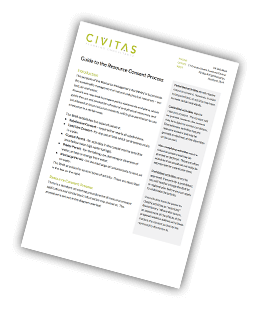Affordable Housing (inclusionary zoning is back on the agenda)
By Iain McManusAuckland has an affordable housing problem - will inclusionary zoning be Council's solution?
WTF
Auckland has an affordable housing problem.
A mechanism used to address this issue in some overseas jurisdictions is "inclusionary zoning".
Inclusionary zoning requires a certain share of new housing construction to be affordable to people with low to moderate incomes.
For example, an inclusionary zoning rule might require at least 10% of the units in a housing development of 10 or more units to be “affordable”.
Some inclusionary zoning policies give developers the opportunity to opt out of providing the accommodation on-site by paying a levy that is used to construct affordable housing elsewhere.
Affordable is typically defined by reference to criteria that allow fluctuation over time as this is more flexible than a fixed dollar amount. For example, affordable might be defined as:
“A rent or price level at which a household on 80-120% of the median household income pays no more than 30% of its gross income on rent or mortgage payments (based on normal bank lending criteria).”
Inclusionary zoning can take a carrot or stick approach i.e. it can seek to achieve its objectives by offering incentives to create affordable housing (e.g. development contribution waivers and/or bonus height or coverage in return for affordable housing) or by simply requiring affordable housing without any offsetting benefit.
Inclusionary zoning policies are attractive to public officials because they can increase the supply of affordable units without requiring a direct outlay of public funds, however, their success overseas is highly variable and depends on how they are structured.
Context
Auckland Council promoted a form of inclusionary zoning (called “retained affordable housing“) through the Proposed Auckland Unitary Plan in 2013 but this was rejected by the Independent Hearing Panel.
However, in 2019, the Auckland Council Planning Committee resolved [PLA/2019/17] that the Council should intervene and lead on affordable housing by investigating regulatory and non-regulatory interventions.
Since then Council has investigated a range of interventions including:
- Inclusionary zoning and other planning mechanisms and incentives
- Retained affordability mechanisms and rental tenure security for renters
- Concessions and grants for community housing providers
- Partnerships with housing providers
- Improving council processes
Recent Decision
On 3 September 2020, the Planning Committee resolved [PLA/2020/65] to:
- Form a political working group to progress affordable housing in Auckland.
- Ask the incoming Minister of Housing to:
- Promote legislative change to facilitate inclusionary zoning for affordable housing
- Increase the building programme for social housing in Auckland
- Facilitate investment in build to rent construction
- Make changes to the Building Code and Building Act to lower the cost of construction.
Council staff intend to go back to the Committee in November to seek a decision on whether to pursue inclusionary zoning (i.e. by way of a plan change to the Unitary Plan).
Potential Benefits of Inclusionary Zoning
- An increase in the supply of affordable housing (if the provisions are structured well).
- Potentially reduced socioeconomic segregation and improved societal integration (through better “pepper potting” of affordable housing, including in more expensive / desirable areas where it might not otherwise be provided).
- Some studies have shown improved health and educational outcomes for families that have moved into housing developed under inclusionary zoning policies in “better” (higher income) neighbourhoods.
Potential Problems with Inclusionary Zoning
- Can reduce the overall supply of housing (including affordable housing) if the provisions are not structured well. A purely regulatory approach reduces developer margins which in turn reduces project viability. This can be the “straw that broke the camel’s back” for some projects.
- Title restrictions to ensure affordable units remain affordable over the long term potentially eliminate one of the benefits of home ownership for owners of those units, namely capital gain. This has the potential to lock buyers of affordable units into their affordable units because they cannot get the price they need from sale of their unit to upgrade to “market” housing.
Takeaway for Developers
After being dropped from the Proposed Unitary Plan, inclusionary zoning is back on the Council agenda.

